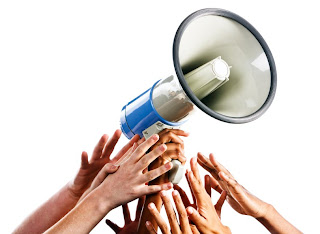A couple of months ago, my church was fortunate to host Tavis Smiley and Cornel West for a private lunch with area religious leaders, educators, public sector workers, and not-for-profit leaders. About 130 people who rarely find themselves all in one room were gathered together - deans, professors, homeless people, housing advocates, health care providers, city workers, entrepreneurs, and Muslim, Jewish, and Christians leaders. There was a general sense of, "Wow! It CAN be like this." As an act of reciprocation, the Seattle AJC invited me to an interfaith lunch with Israeli Ambassador Michael Oren, who was in town for a public event later in the evening. During lunch, straightforward questions were asked about Israel's policies, settlements, Iran, Egypt, nuclear armament, the Wall, and other topics. And, these topics were discussed without the tenor of the discourse fraying into the usual name calling mass of crazy that so very often accompanies difficult conversations. For some, these two lunches have sparked interest in exploring the nature of public discourse in America (at least in the Pacific Northwest) - real, deep, serious, meaningful exploration. Is civil civic discourse possible, especially during an election year? What role does religion play in public discourse? And, can it be a positive influence in our public commons rather than something divisive and polarizing?
The language that we use profoundly shapes not only the obvious message, but it conveys a meta-message. When we heard words -- "progressive," "conservative," "elite," "religious," "Christian," "Zionist," "God," "believe," "FOX news watcher," "MSNBC follower," "Islamicist," "radical," "socialist," etc -- we create associations with meaning that go far beyond the literal meaning of the word. Take "Christian," for example. The word literally means "little Christ" and has been used for two thousand years to describe a follower of Jesus. However, in American culture today, the word tends to lean toward the following caricatures:
- An Evangelical (probably Southern) who doesn't "believe" in evolution, global warming, gun control, peace, love, grace, intellectual pursuits, homosexual equality, abortion, education, a common good, diversity, tolerance, inclusion, or science. This person probably does "believe" in an exclusionary Christology, a jingoistic nationalism, patriotism, truncating personal liberties if they contradict evangelical values, a strong military, no new taxes, limited government except as that government enforces evangelical beliefs, the moral authority of the GOP, tea party leanings, racism, homophobia, white supremacy, and the power of faith over science.
- A Roman Catholic, who in addition to sharing most of the traits listed for the Evangelical, covers up for pedophiles and is a misogynist.
- A prophet of the prosperity gospel seen as a new brand of snake oil salesman/person, who uses Christian language to teach personal and financial gain. This prophet most likely serves a megachurch, is wealthy, fleeces its congregants, and sells programs for self improvment.
I wonder how we might better frame conversation so that actual discourse can take place. I wonder what would be entailed for us to stop listening to the rhetoric of caricature and hyperbole in order to engage in serious and deliberate inquiry. Can this be done while still wrestling with the deep and difficult issues that face us as a nation, people, and planet?
I think so. At least, I hope so. The first casualty required in order to begin changing the framework of public discourse has to be the charged language used to convey meta-messages that arrest dialogue rather than promoting it. At least, a reasonable understanding of language and meaning is needed in order to step into the serious work of communication.
Words like "structuralism," "phenomenology," "poststructuralism," and "semiology" are not found in everyday parlance nor should they be, but their importance in helping us understand our world, how we attach to meaning, how we create meaning, and how meaning acts in our lives should be part of our consciousness, especially if we intend on earnest public discourse. Every person who has an opinion about the news, the world, politics, and religion need not be intimate with the works of Jacques Derrida and GWF Hegel, but those framing our public dialogue should be conversant with their ideas, e.g. "différance," and "Hegel's dialectic."
We are living during a time of deep change in how we connect with and even create meaning. The institutions and ideas that we have taken for granted are unraveling and reconsituting themselves in unknown ways becoming unknown things. Times like these are always fraught with tension and discord. There are even people today who question the value of a public commons, of public discourse. I, however, believe that the public commons is a moral and social good, something to be protected by all of us, whether we use the complicated jargon of the academy or whether somehow we simply know deep down that shouting matches, caricatures, and hyperbole do nothing to enhance life for any of us, much less all of us. Simply put, there's nothing neighborly about certain kinds of behavior. Can't we at least aspire to simple neighborliness?
I'm hoping for a better conversation this election year. And, I'm willing to work toward a better public discourse. And, I'm looking for conversation partners...
